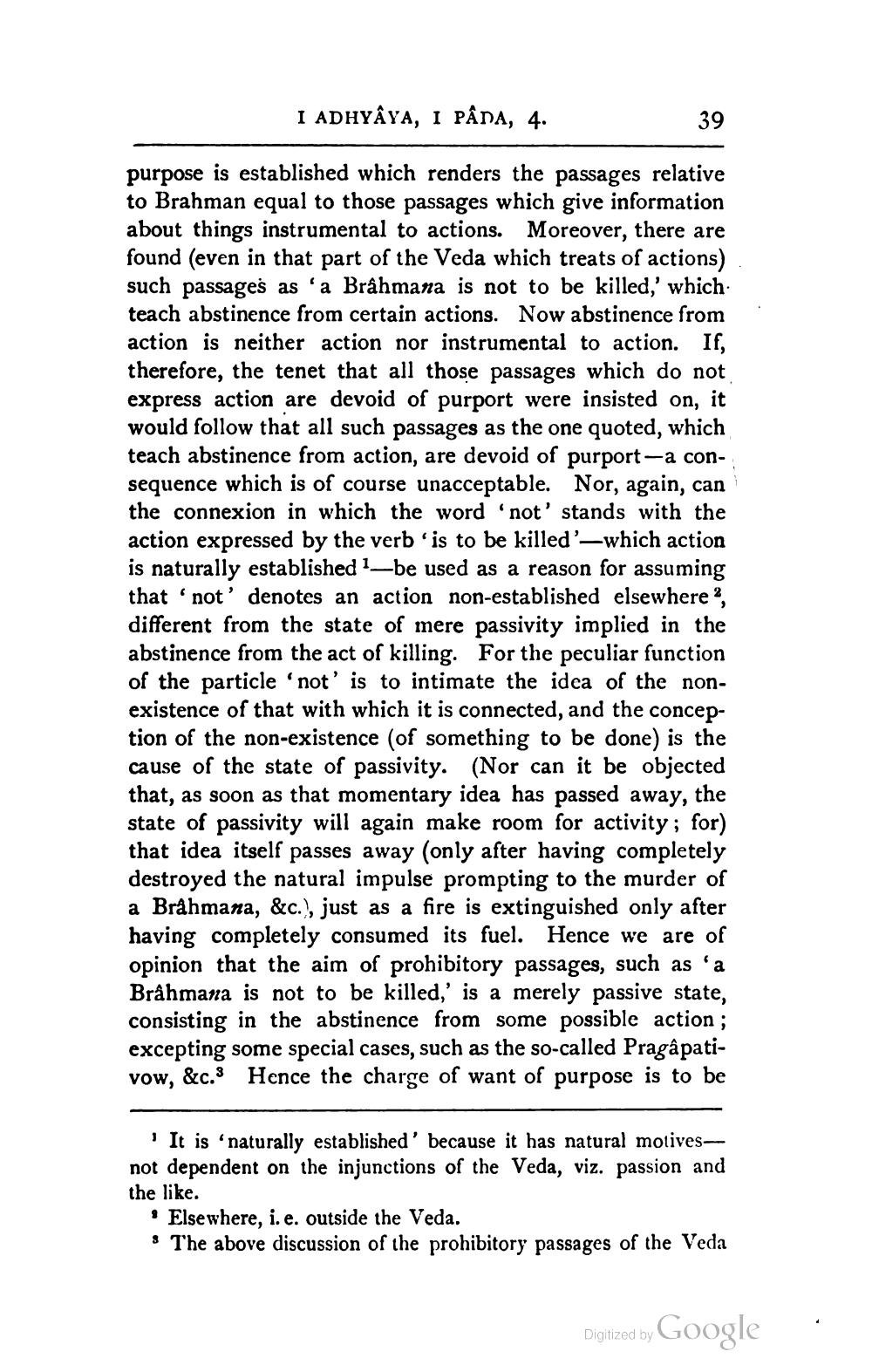________________
I ADHYAYA, I PÂNA, 4.
39
purpose is established which renders the passages relative to Brahman equal to those passages which give information about things instrumental to actions. Moreover, there are found (even in that part of the Veda which treats of actions) such passages as 'a Brahmana is not to be killed,' which teach abstinence from certain actions. Now abstinence from action is neither action nor instrumental to action. If, therefore, the tenet that all those passages which do not express action are devoid of purport were insisted on, it would follow that all such passages as the one quoted, which teach abstinence from action, are devoid of purport-a consequence which is of course unacceptable. Nor, again, can the connexion in which the word 'not' stands with the action expressed by the verb 'is to be killed '—which action is naturally established be used as a reason for assuming that 'not' denotes an action non-established elsewhere ?, different from the state of mere passivity implied in the abstinence from the act of killing. For the peculiar function of the particle 'not' is to intimate the idea of the nonexistence of that with which it is connected, and the conception of the non-existence (of something to be done) is the cause of the state of passivity. (Nor can it be objected that, as soon as that momentary idea has passed away, the state of passivity will again make room for activity ; for) that idea itself passes away (only after having completely destroyed the natural impulse prompting to the murder of a Brahmana, &c.), just as a fire is extinguished only after having completely consumed its fuel. Hence we are of opinion that the aim of prohibitory passages, such as 'a Brâhmana is not to be killed,' is a merely passive state, consisting in the abstinence from some possible action ; excepting some special cases, such as the so-called Pragâ pativow, &c.3 Hence the charge of want of purpose is to be
It is 'naturally established' because it has natural motives— not dependent on the injunctions of the Veda, viz. passion and the like. • Elsewhere, i.e. outside the Veda.
The above discussion of the prohibitory passages of the Veda
Digitized by Google
Digitized by
.




